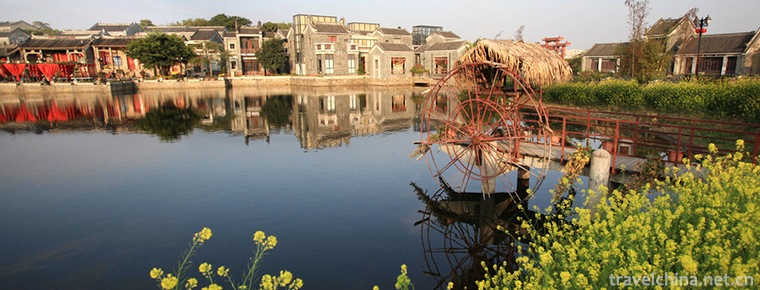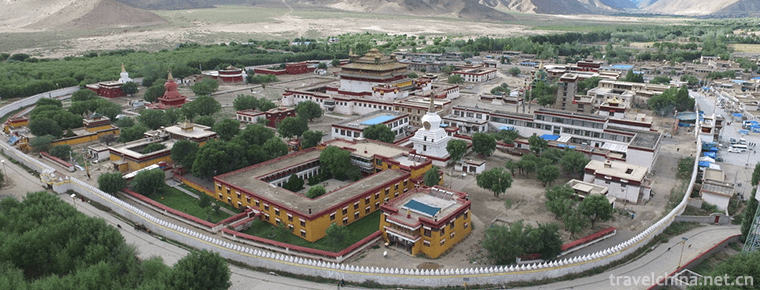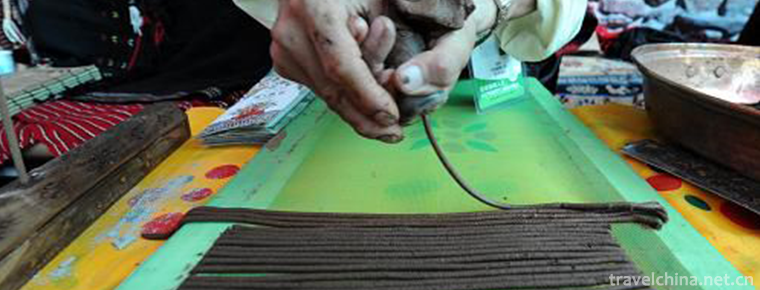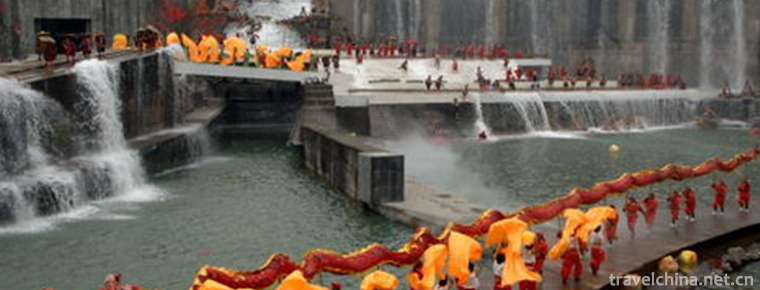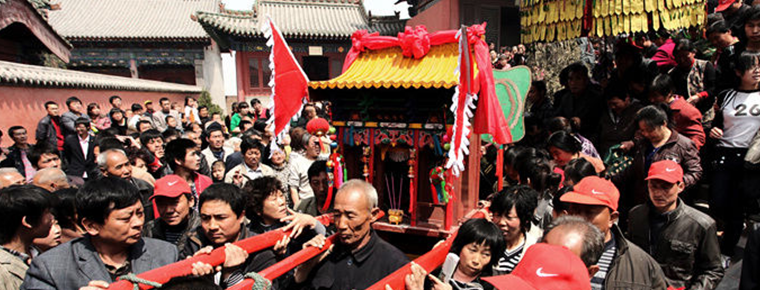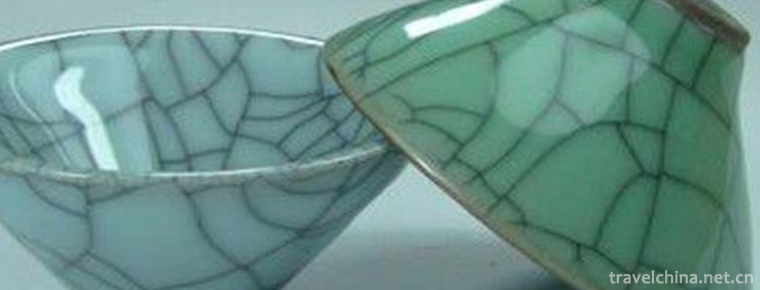Shandong Huagu
Shandong Huagu
Shandong Huagu is a traditional folk art form with Huagu as the main accompaniment instrument. It is also the only type of walking songs in Shandong folk art. Shandong Huagu is very good at expressing the short life stories of parents, that is, the so-called "needle and thread bamboo sticks". Shandong Huagu derives a variety of local operas, such as two-chord, four-level tune, five-tone opera, Liuqin opera, Maoqiang opera, Yiguo opera, etc. It is the direct mother of many kinds of operas and has had an important impact on the development of Shandong local operas. In 2006, it was listed in the first batch of intangible cultural heritage in Shandong Province.
On November 11, 2014, Shandong Huagu was listed in the fourth batch of national intangible cultural heritage list with the approval of the State Council.
Historical Origin
Shandong Huagu is very good at expressing the short life stories of parents, that is, the so-called "needle and thread bamboo sticks". Since Yuan and Ming Dynasty, because of the interesting language and many flirtatious content, it has often been banned as "lewd words" by the government, but it is popular among the people. In the southwestern part of Shandong Province, there is a folk song: "Flower Drum enters Zhuangzhuang, family does not drink soup (dialect is dinner)." It means that every household goes to listen to flower drums, and everyone is so fascinated that they don't even eat dinner.
In the Southern Song Dynasty, there were records of flower drums in Shandong Province. A survey of Shandong Quyi artists registered in the 1950s shows that in the mid-Qing Dynasty, Huagu was active in the border areas of Shandong, Jiangsu, Henan and Anhui provinces. Among them, the popular flower drums in Shandong can be roughly divided into three routes. They develop northward and eastward with the southwest of Shandong as the center. They are all artistic forms such as folk ditties and dances. They absorb and combine with each other to form different artistic styles, resulting in a variety of local operas, such as two-chord, four-level tune, five-tone opera, Liuqin opera, Maoqiang opera and one-hook.
The popular "South Road" of Shandong Huagu in the southwest of Shandong Province, such as Heze, eventually evolved into two kinds of operas in the late Qing and Xianfeng dynasties. However, the flower drum, a form of rap and singing based on Heze dialect, has not disappeared, and has always been in line with the performance of traditional operas. It is one of the important forms of cultural entertainment for the people of Heze for a long time, and still retains its original flavor.
representative figure
Referring to Shandong Huagu, we can not but mention the late artist Du Xueshi's poems. Reporters in the interview, the most heard is his artistic name "Black Cloud". Du Xueshi (1900-1976), Ding Tao Ren, 12-year-old Baipei County flower drum artist "half bowl of honey" as a teacher, the main role, 18-year-old in the southwest of Shandong Province, emerging, often singing in the bookstore of Jining Tushan miscellaneous eight places, or four townships to gather in the stalls.
The performances such as Chen Sanliang Climbing Hall, Li Yanming, Flower Hall Club and Jizhou Visit were welcomed by the audience, especially young women. His voice is clear and his performance is moving. Because of his dark skin and excellent art, the audience gives the sign "Black Cloud" intimately. In the southwest of Shandong Province, there is a saying that "no one can suppress the black clouds when they come from the South or the north".
Du Xueshi married Lin Shuying during his stay in Jining. Lin Shuying studied art with her husband and renamed Du Xuelian after her marriage. A few years later, she also gained a great reputation and became one of the "four famous figures" in the Huagu circles of Lu, Su, Henan and Anhui (Wang Guifang, Guo Zhenfang, Yin Yanxi and Du Xuelian).
Husband and wife in Heze, Jining and other places widely accepted disciples, "Black Cloud Class" performance more active. Later, Huagu Ban was banned on the charge of obstructing weathering, forcing "Black Cloud" and Huagu artists Xiaolanzi and Dalanzi from northern Jiangsu to form Huagu Ban Club, which moved to Shanghai Jockey Ground for performances, then transferred to Fuyang, Jieshou and Yanzhou, Tai'an, Liaocheng, Zibo, Dezhou and Jinan, renamed "Shandong Old Tune", "Shandong Dry Bang Bang", "Huagu Clove" and "Laobang Zibo". Continue to perform. When performing in Jinan, he once sang opposite stage with "Fresh Cherry" in Nangangzi. During the performance in the Grand View Garden, the audience presented the plaque of "Yiguan North China".
Audience group
Many villages in Yuncheng have flower and drum artists. Every year in the fallow season, flower and drum clubs can be seen in county towns and larger towns. So far, people there still love flower and drum.
Shandong Huagu does not have a strict pedigree of inheritance. Most of them are enthusiasts who teach by mouth and heart. Even if they succeed, few of them become professional actors. The scattered groups in leisure time do not re-inherit. They can sing together. Only a few professional performance clubs have a slightly standardized relationship of inheritance. Since the 1990s, with the death of old artists, the inheritance of flower drums is not continuous, many relatively active folk classes are declining, and the performances spontaneously organized by farmers are becoming less and less. In order to protect this intangible cultural heritage, the staff of the Museum of Art specially organized several local folk artists to perform in order to record audio and video materials for preservation.
Wang Fengjie, a 51-year-old villager in Dingbei Village, studied art with Xie Ruquan, a famous flower drum artist in Yuncheng. He recalled: "My master's Dream of Little Two Sisters is so tasty that people in nearby villages would like to listen to it and follow it." Often from the afternoon to the evening, young and old listen fascinated and forget to go home for soup. Miao Qingsuo, 32, and Peng Xianrong, 35, are husband and wife from the Miaohutong village of Yuhuangmiao Town, Yuncheng. Miao Qingsuo said that he sang as a child and followed the village's flower and drum troupe around Heze.
A man and a woman singing and dancing in pairs, rap, is the main performance form of Shandong Huagu. Since the Yuan and Ming Dynasties, flower drums have often been banned as "obscene lyrics" by the government, but they are deeply loved by the people in the folk.
Representative Works and Their Inheritance Significance
Shandong Huagu is very good at expressing the short life stories of parents, that is, the so-called "needle and thread bamboo slips", which can be seen from its basic repertoire "the Eight Old Books" - Toutang, Ertang, Succession of Wife, Huawall, Big Curtain, Second Curtain, Huajiao and Holding Brand. Most of the 140 pieces of Shandong Huagu music that have been preserved so far reflect the love stories of men and women and the moral and ethical stories of families. The repertoires that often appear are: Goodman Duan, Black Donkey Duan, Wang Po Cursing Chicken, An'an Sending Rice, Wang Xiao Catching Foot, Wang Gang Painting Temple, Zhu Maichen Divorcing Wife, Qiu Daguan, Wang Erjie Cutting Vegetables, Painting Shoes, etc. They are full of interest in life, and their lyrics are popular and vivid. They have a variety of studies, such as dialectology, sociology, Folklore and local culture. Value. Its words are mostly seven-character sentences and cross sentences, which seem to lack standardization. Only by careful study can the artists show their wisdom and achievements in using language, which shows the unique charm of folk art.
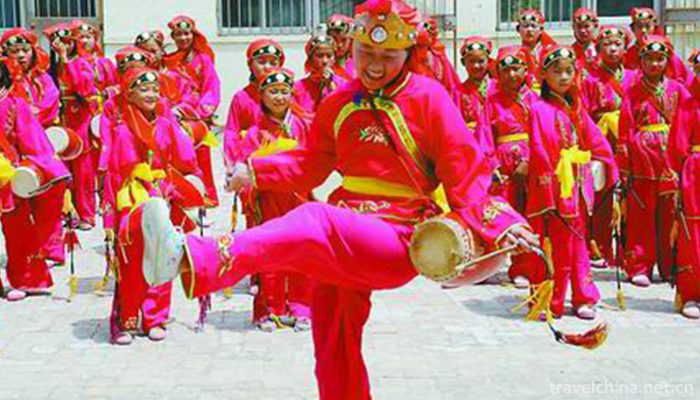
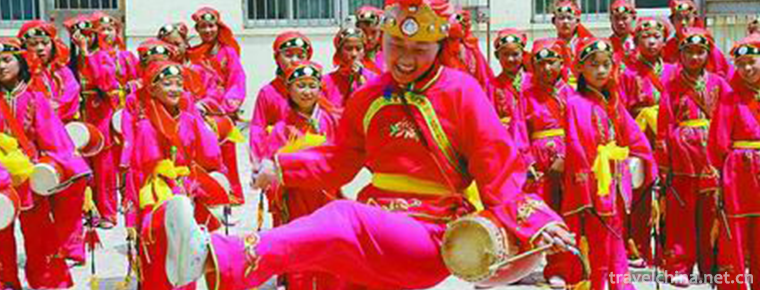
Shandong Huagu
-
Lake Manasarovar
Ma Pang yongcuo is 35 kilometers east of the town of Pu Lan county
Views: 194 Time 2018-10-12 -
Lingnan Impression
Lingnan Impression Park is located in the south of Guangzhou University Town (Xiaoguwei Island). It covers an area of 16.5 hectares. It is a tourist attraction that gathers sightseeing
Views: 452 Time 2019-02-03 -
angye Temple
Sangye Temple, also known as Cunxiang Temple and Wubian Temple, is located in Sangye Town, Zaburg County, Shannan District, Tibet Autonomous Region, under the Habu Mountains on the North Bank of the Y
Views: 194 Time 2019-02-07 -
Tibetan Fragrance Production Techniques
Tibetan incense is a rare "Tianmu" in the snow-covered mountains of Tibet. There are many records in Buddhist sutras. Tianmuxiang is the top-grade offering of Buddhist rites and buddhism.
Views: 187 Time 2019-04-05 -
Carpet Weaving Techniques
Uygur carpet is a handicraft with a long history and tradition. It integrates painting, sculpture, knitting, embroidery, printing and dyeing. Characteristic
Views: 130 Time 2019-04-26 -
Dujiangyan Drainage Festival
The Qingming Drainage Festival is a traditional festival in Dujiangyan, Sichuan Province. Every year during the Qingming Dynasty, Dujiangyan City welcomes the annual Qingming Drainage
Views: 248 Time 2019-04-28 -
Hongdongs custom of visiting relatives
The custom of walking relatives in Hongdong is a kind of Han traditional folk culture which spreads in Ganting, Wucun, Xincun, Longma and Wanan townships
Views: 147 Time 2019-05-03 -
Firing Techniques of Wuzhou Kiln Ceramics
The traditional firing technique of Wuzhou kiln is a local traditional handicraft technique in Zhejiang Province. Wuzhou kiln is located in Tiedian Village, Langya Township, Jinhua City. Jinhua was na
Views: 138 Time 2019-06-30 -
Beijing Language and Culture University
Beijing Language and Culture University, established in 1962 under the personal care of Premier Zhou Enlai, is a university directly under the Ministry of Education of China. In June 1964, it was name
Views: 234 Time 2019-09-22 -
Huangshan University
Huangshan University, formerly known as the Huizhou normal school, was founded in 1978. In December 1997, it merged with the Huizhou Junior College of University of Science and Technology of China. It
Views: 142 Time 2019-11-17 -
cheongsam in the Republic of China
Since 1840, the western culture has been infiltrated into the local culture of the Qing Dynasty. Many coastal cities, especially Shanghai, have taken the lead in western culture because of the mixture of Chinese and foreign cultures, and their clothing has begun to undergo potential changes.
Views: 141 Time 2020-12-11 -
Yibin special dishes
Yibin people like noodles most, such as stewed chicken noodles, salty and fresh noodles, sausage noodles, beef noodles, Beijing sauce noodles, mushroom noodles, three fresh noodles, spicy chicken noodles, eel noodles, Longfeng noodles. Among them, burnin
Views: 91 Time 2020-12-18

